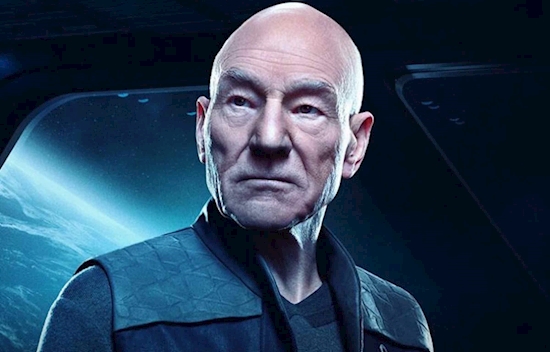Here are all the reasons why ‘Star Trek: Picard’ is just bad
13Views
by: Molly HarrisYou might as well call us Armus, the bog monster that killed Tasha Yar (Denise Crosby) on CBS’s Star Trek: The Next Generation, because we too are disgusting piles of goo filled to the brim with hate.
Only we have chosen to channel that hatred to CBS’s Star Trek: Picard, rather than the world in general and/or innocent security officers.
It was so bad.
It was terrible. It was a mind-numbing slog that became more incomprehensible the longer it went on.
What would have been forgivable offenses in a new program with new content and characters felt unforgivable in an established property with our favorite Star Trek captain of all time.
So many interesting questions were posed over the first few episodes, only for them to be ignored/steamrolled in favor of more questions, which were sloppily answered to make way for even more questions. The final result was as if your high school math teacher took a cocktail of meth and PCP and started screaming very loudly about the quadratic formula, inches from your face.
Let’s go through all of the ways we could not stand the series, because there’s going to be a second season of this garbage and we’re not ready to think about that yet.
These relationships mean nothing
The relationships forged on Picard are similar to those in a Sims family: ultimately meaningless and a waste of time that could have been spent doing something, anything more productive.
The initial episodes of the first season were interesting, because it stacked the deck with a catalogue of different archetypes from different genres: you have Jean Luc Picard (Patrick Stewart) as the old man on his final mission, Soji (Isa Briones) as the Joss Whedon-style ingenue with murder powers, Raffi (Michelle Hurd) as the jaded cowboy failed by the world around her, Agnes Jurati (Alison Pill) as the calculated scientist with a dark secret, Elnor (Evan Evagora) as a space samurai, and Rios (Santiago Cabrera) as the badass/bad boy with an unending supply of cigars.
It should have worked! The cast is super talented, the premise is interesting, if only the writing had not been accomplished by banging the skulls of Star Trek nerds against a computer to see what comes out.
Every character on this show was introduced, given anywhere between 45 seconds to three minutes of backstory, and then thrust into an action scene that did not deliver on any real action.
This is not Star Wars; these relationships should mean something.
The one thing Star Trek has always done remarkably well is introducing a large ensemble cast of different backgrounds and showing how everyone gets along. With Picard, the trajectory of each character moves at light speed.
Take Jurati: she started out as the mild-mannered scientist interested in Soji based on her background in synthetics, then it turns out she helped build her, she was in a secret relationship with Bruce Maddox (John Ales) (who she ended up murdering), she successfully hid the murder from others on the ship, had cry-sex with Rios, attempted to commit suicide, and admitted her complicity before the entire crew.
The first season only had 10 episodes. Can you even imagine what Jurati will be up to in season 2? She’ll probably start a band.
At this point, the only relationship we’re even mildly excited about is the potential one hinted at between Raffi and Seven of Nine (Jeri Ryan) in the season finale. But that might just be because the writers haven’t had a chance to beat us over the head with it yet. Any well-plotted character growth will probably be destroyed by the time the second season premieres.
Bingewatching is ruining good TV
This has been our biggest issue with new Star Trek properties; these adventures don’t need to be serialized.
Showrunner Michael Chabon described the narrative approach of Picard as “novelistic,” but the speed with which Picard moved through events in the first season felt more like a pulp comic than an actual novel. The plot did not unfold, it punched you in the face as it moved from one setting to the next.
What makes TNG so rewatchable is that each episode dealt with a new problem for the crew to puzzle over. Sometimes it was serious, sometimes it was silly, but the crew (for the most part) remained consistent in their characterization.
It makes sense for Picard to be more serious than the eternal optimism of TNG (especially in this current climate), but while the world may be darker, the characters should not be.
We love Star Trek because it idealizes humanity, and what we can do if we set aside prejudice and judgment to work towards a better world. Picard needs to remember that the heroics of TNG were frequently quiet moments of bravery, rather than mindless explosions. They might not be as loud, but they mean more in the long-term.
Source: filmdaily.co

